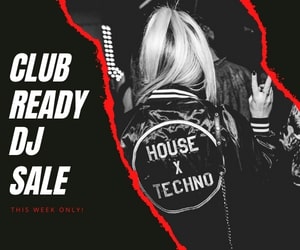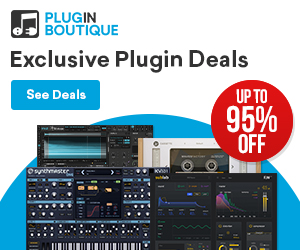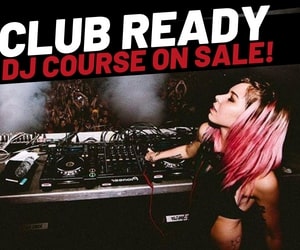This page contains affiliate links, which means I may receive a commission if you purchase through links on my site, at no additional cost to you. Find out more here: affiliate disclosure.
So you’ve written some killer tracks – now what? How do you get people to listen to your music?? Know which music marketing strategies to use?
Getting your music heard is hard, building a following is hard – but it’s not impossible.
So how do you get people to listen to your music? How do you avoid being ‘undiscovered’?
You need a dedicated music marketing plan.
A music marketing plan will provide you the clarity and focus you need to market your music. From this foundation you can grow your following and get your music heard.
So lets build the foundation and explore some music marketing strategies to grow your following.
Music marketing strategy – The Foundation
The best thing you can do to start your music marketing efforts is to build a foundation. Building a foundation for your brand will clarify your goals and simplify your marketing efforts.
A foundation involves defining the core ideas of your music marketing strategy and creating the minimum infrastructure to begin promoting your music.
This will consist of a marketing plan and a website (at a push it could be a social media account). The marketing plan will inform all of your other music marketing strategies and the site will be the ‘main store’ for your fans. Your website will contain all the information fans and press will ever want to know about you.
I find using the concept of a marketing funnel useful – the site is where we funnel people to. All your marketing efforts will direct (funnel) people to the site where you can get them to listen to your music, sign up for your mailing list, buy tickets & merch, and convert them into loyal fans.
So let’s get started.
To build your marketing foundation you will need to focus on the following areas:
- Building your Brand foundation and infrastructure -Music Marketing Plan, Brand identity, Audience Research, Website, Electronic Press Kit, Email list, and Setup Social media channels.
- Create a Social Media content strategy
- Create a repeatable Single release strategy
- Media Outreach
Here’s some gentle advice – this is a marathon, not a sprint. It may take you some time to build your foundations. That’s OK. Just keep chipping away.
Table of Contents
Related: Best Music Business & Marketing Books

1. Create a Music Marketing Plan
When I first realised I had to do this I felt deflated, my musician ego fought against the idea of doing ‘business’ work. “I’m a Creative!”
I needed to get over that – the reality is, if you want to market your music, you need a plan. You can find many music marketing strategy blueprints on the web to get you started. Try this blog post from the website Bandzoogle.
I created my own music marketing plan after reading ‘Get More Fans’ by Jesse Cannon & “How to Make it in the New Music Business” by Ari Herstand. I recommend both books.
At a minimum, include the following topics in marketing your plan
Brand Identity
Who, even are you??
Defining your brand is defining YOU. You as an artist, what is your purpose, what are you trying to say? Your brand should encapsulate this message and express what your music is about. Consider the aesthetic of your brand too – colours, fonts, logos. Once you have gone through this process it will help to provide clarity and make all other marketing decisions your music career so much easier.
Audience Research
It’s important to define who your audience is, it will help you understand them better and provide what they want. Find out where your audience hangs out, what hashtags they use, what social media content they enjoy, and what forums, websites, and blogs they use. What are the other artists they like?
All this information will help you to identify the marketing channels, traffic sources and social networks of potential fans. This is where you will then concentrate your marketing efforts.
Top Tip – Make sure you install Facebook Pixel & Google Analytics onto your website to track visitors and demographic data (i.e. who your audience is). This will help you create audience lists for any future advertising.
If you are struggling to find blogs, social media channels in your niche consider using Buzzsumo to help locate them.
Your Goals
What do you want to accomplish? Be specific. The goals you set will inform the music marketing tactics and strategies you create. If you want to play more shows then you will focus your efforts on reaching out to promoters and getting gigs, if you want to increase your social media following then you will focus more on social media music marketing strategies. Whatever your goals ensure you have set them eg.
- Increase Instagram followers by 100 per month
- Get 4 gigs per month
- 1000 streams for the new single release
Once you have defined your goals you can move into how to achieve them, the action plan.
Action plan
Now that you’ve defined your goals, you put specific plans in place to achieve them. You can then action your plans with various music marketing strategies. For example:
Goal
I want to increase Instagram followers by 100 a month.
What steps are you now going to take to do that?
Plan
Create a Social media strategy for Instagram.
Post on topics that my audience will enjoy (informed from audience research)
Post 3 videos a week on days my audience is most active – Tues 9 pm, Fri 9 pm, Sat 12 pm
Use hashtags found in audience & Keyword research. (more on Keyword Research later)
Measure goal
Use Facebook Business Suite to track how many likes were generated over a month.
At the end of the month evaluate, improve, and repeat.
Note – this is a simple example, your social media strategy can be far more comprehensive. See the section on Social media Strategies for more info.
Related: The Best Music Business Courses

2. Create your own artist website
If you’re an independent music artist you need a website! This is an absolute must. Look at your website as the online hub for your act. You can have everything about your act on there; tour dates, booking forms, an electronic press kit, and a place to buy your merch. Your website is going to often be the first place people check and the first place you can direct your fans to.
One big reason you should create your own site is that you own it! You have complete control over the content, your visitors’ experience and retention of your audience. Social media platforms make algorithmic changes that could dramatically affect your audience reach overnight. Having your own website avoids you from being completely reliant on social media platforms for all of your music marketing.
You don’t have to hire someone or be fluent in coding to set up a music website, you can make your own website easily these days via platforms like Squarespace, Wix or Shopify. These platforms offer easy-to-use templates with e-commerce options integrated into them so you can sell your merch, gig tickets and digital products such as albums.
If you are a little more technically minded you could use WordPress & a hosting company such as Bluehost. This is a slightly more involved approach but is much cheaper than using Squarespace and has much more room for customisation.
(I recommend using a WordPress site)
Whatever platform you end up choosing, here’s what you should include on your music website:
- News: A section for you to make announcements of new releases, upcoming tours, and any media appearances.
- Merch store: Making money as a music artist is hard – get yourself a merch store to help cover the bills. Having fans wear your merch helps with music promotion too. Consider selling T-shirts, hoodies, vinyl, or posters.
- Tour dates: You want people to come to see you play live right?
- Social links: You need to make it as easy as possible for people to find your socials, consider using a SmartLink service like Linktree to make it even easier.
- Contact information: Make sure fans, record labels, promotors and sync agencies can get in contact with you via email or a contact form.
- Music player: Use Spotify’s built-in player to embed your amazing music or use the streaming platform of your choice. All major platforms such as Bandcamp and Soundcloud allow you to embed your music. This will also make it easier for people to follow you on your chosen platform.
- Newsletter signup: Build an email list!! This is vital for engaging with your fans so make sure to provide a way to sign up for a newsletter. Use a company like Mailchimp or Mailerlite or Linktree to capture subscribers.
- Your biography: Visitors to your site have actively searched for you, so give them something to read about – they’ll be interested in your influences, background and who you are as an artist.
Music Blog
As you grow you may find it useful to attach a blog to your website. This will help with the SEO (Search Engine Optimisation) of your site and will vastly increase the amount of traffic that you receive. This is a music marketing strategy that often gets overlooked! If you are able to write content that you think your audience will enjoy and find valuable then do it! It will bring many more visitors to your site, increase brand awareness and provide many networking opportunities.
Writing my blog has helped me gain much more exposure and understanding of my audience. By doing keyword research (the process of finding search terms that people enter into search engines) and topic research I have been able to find subjects that potential fans are interested in. This has helped me find appropriate keywords and topics for my blog, and hashtags to target on social media. I discuss the dark art of SEO in more detail below.
Related: SEO Tips for Musicians

3. Create Merch to Market Your Music
Making money as a musician is hard. Making merch is one way of monetising your music brand and getting some music promotion done at the same time.
When you’re building your music profile, time is really valuable so I would advise against distributing your merch yourself. I’ve done it before and it can create a lot of admin. Thankfully, you can get t-shirts and hoodies made and distributed by a third-party company, allowing you to focus on your music.
You can set up merch on your website with an integrated print-on-demand service. Print-on-demand services take the hassle out of holding stock and fulfilling orders as they do all of that for you. More time to spend making (and marketing) your music!
You have a few options to set up your music merch store- if you built your site with Shopify you can integrate the print-on-demand service Printify. Simply design your merch and add it to your website – follow Shopify’s guide on how to do that here.
If you have the capital to invest and think you can make time to distribute your merch then another option is using a print service like Printful or Vistaprint. Buy yourself a batch of merch and then sell at gigs/ through your social channels and website.
Top tip – Consider using Canva to help you knock up your merch designs for free.
Check out my article on How to Make & Sell Band Merch to find out more.
4. Create an Electronic Press Kit (EPK)
If you aren’t signed to a record label or are taking the DIY approach you will need to raise your brand profile with the media yourself. That’s why you should have an easily accessible electronic press kit (EPK). An EPK is a handy document that provides someone with lots of information about your act.
By creating an EPK you have an easy package that you can send to reporters, promoters, radio stations, playlist curators, and record labels. Having the EPK makes you look more legit and can make it much easier to secure bookings and get press.
As a promoter, I’ve received hundreds of requests from acts to play at my shows. Having press-ready photos, social links, a streaming link and a bio really helps me understand the act and have confidence in musical identity and their professionalism. You may be surprised how many musicians do not have that!
Your EPK should make it as easy as possible for someone to access all the info they need about you. Most artists include the EPK on their website. This is a neat way of doing things as you can simply direct people to the EPK landing page on your site. This avoids having to attach PDFs to emails by using a much neater website link.
If you don’t want to include the EPK on your website then keep a digital copy that you can forward in emails / over socials. Or you could consider doing a one-page website with all the contents of your EPK included. One-page landing pages are a feature that is included with many music marketing platforms such as feature.fm and Linktree.
The EPK content should include:
- Your bio: In the context of an EPK, your bio is your elevator pitch. It’s how you might introduce yourself to someone in person. Make sure you keep it to no more than two or three sentences.
- Promo photos: A great photo is a great asset to your brand. Eye-catching imagery can really make your EPK stand out. It’s also really useful for media & promoters to be able to access a quality picture quickly for use on social media/ publications. Make sure you include high-quality images in a range of formats (colour / black and white, vertical and horizontal).
- Your music: Obvious? But some people forget to include this! Make it easy for anyone looking you up – embed a music player into your EPK or include links to your most popular tracks.
- Your videos: Include your best videos so that the media can embed them in their articles / social posts.
- Press cuttings: If you’ve already started getting some press attention then add the links and quotes from reviews into your EPK. People love social proof and this will show that you are worth paying attention to.
- Social links: Your website is a great place to learn about you – however it can be a little static compared to your social media accounts. Your social media accounts really show off what you’re about as an artist in real-time – and the feedback you get from your fans. Include links to your most active, engaged profiles. Consider using a smart link service such as Linktree to keep everything organised.
- Contact details: Another obvious one! But don’t forget it. Make sure people have a way to contact you via email or phone
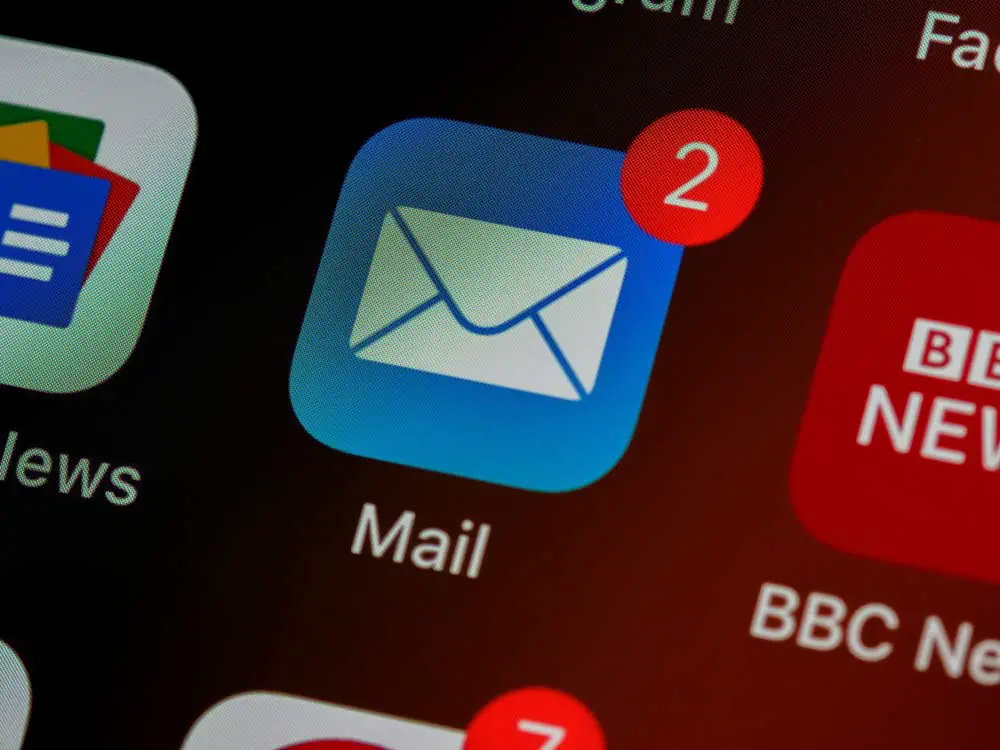
5. Build an email list
Don’t underestimate the power of email marketing! It’s another essential marketing strategy for musicians. It can be extremely effective for building a community, raising your brand profile, and also making money from your music. By using your various online channels, such as your website and social media, you can funnel your traffic into your email list. By including an opt-in form on your site or subscription service (like Linktree) on your socials you can start growing your email list.
As you build your list you can then can email your subscribers with great content, merch offers and information about upcoming gigs. This further reinforces your relationship with your subscribers and keeps them as engaged fans.
Statistics back this up.
Statistics from Mailchimp, a leading email marketing platform, show us that an email’s average open rate is 21.33% (across all industries). But an average open rate of 21.88% for emails in the music industry. Our industry also has a high click-through rate (people who click a link in the email) at 2.94%. Even better is that only 0.26% of subscribers opt out of the lists.
Having a growing email list also allows you to directly contact your fans and let them know about a new track or album coming out – or new merch and upcoming tours.
The beauty of email marketing is that you can automate your newsletters by using an email newsletter platform. This makes it much easier to create email opt-in forms and landing pages, do the design and send out your newsletters and email marketing campaigns. There are a few options available to begin with including Mailchimp, Moosend & Mailerlite. All are affordable options with Mailchimp & Mailerlite both offering a free plan for up to 1000 subscribers.
Top Tip – Most email platforms have simple templates included. I improve the quality of my artwork or branded content check by using Canva.com – it makes it very easy to knock up marketing assets for free. (Free & Paid plans available).
Consider the following when applying your email marketing:
- Incentivize fans to sign up: Offer a free music download or Merch Discounts.
- Effective Follow-up: After someone signs up, automate a thank-you email, plus deliver any offers you promised.
- Value proposition: Why will fans want to stay subscribed? Give them a valuable reason to stay such as discounted gig tickets or unique free content.
- Make money from your mailing list: You can add CTAs (Calls to Action) that drive your readers to your music, merch or ticket sales.
- Stick to a schedule: DO NOT SPAM your subscribers. Unless you have an upcoming album launch, sending an email every couple of weeks is fine. However, test different frequencies and see what works best for your audience.
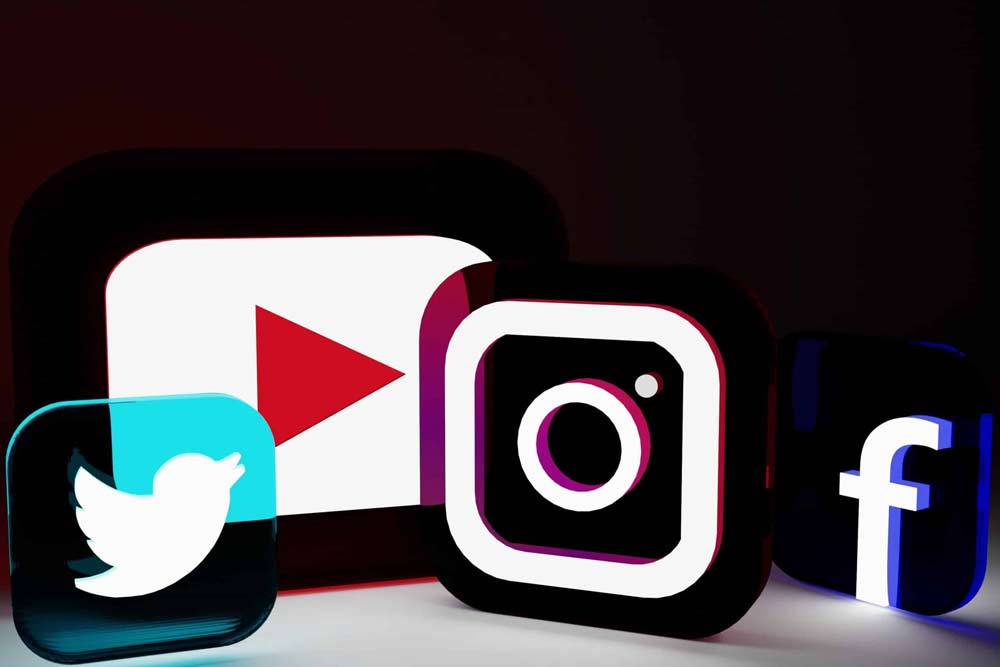
6. Create Social Media Accounts for Your Music
I recommend picking two social media accounts to focus on building a fanbase. It’s much better to build one large following on one platform than to build smaller audiences spread out over many platforms.
Once you have picked two platforms – create a social media content strategy and begin creating engaging content. Creating content for Social media can feel overwhelming, but it doesn’t have to be that way. I used Hubspot’s free guides & social media marketing strategy templates to plan out my social media content strategy and content calendar. You can check that out here.
Your content doesn’t have to be overly complicated. Make your plan achievable and easy enough that you can consistently create & post your content. The algorithms favour consistency as well as quality.
Analyse what is working well in your niche and replicate it with your own spin. For example – many indie musicians cover songs on TikTok to build up their fanbase and then release their music to that audience.
Making content in ‘batches’ and scheduling it is much easier to do. For example, if you have decided to make a video a week – make 5 in one sitting and then schedule them over the month. This way you can get a month’s worth of social media posts and content done in one day. You can schedule your social media content over the following month using Meta Business Suite, Buffer or Hootsuite. Buffer allows you to schedule over 3 social media platforms on the free plan. Which is great for scheduling the same music video to TikTok, Insta & Facebook.
Another useful resource for planning your digital marketing and social media content strategy is the book ‘One Million Followers‘ by Brendan Kane.
Related: Best Music Business & Marketing Books
Building on the Foundation
Once you’ve built your foundations you can continue to build and grow your brand using the following music marketing strategies:
7. Market Your Music Across As Many Platforms As You Can
This may sound like another obvious tip – but it’s one many omit from their strategies for music marketing. Your audience will be scattered all over the internet, in forums, social media platforms and streaming platforms. It’s your job to find out where they ‘hang out’. Once you have defined your audience and their locations (in your marketing plan) you can start to target them.
Their locations may be social media platforms, different music streaming services and different forums and subreddits. Find them and join them! I also recommend joining the subreddits of your genre and local music scene. For example, if you were an electronic musician from Manchester, UK – you could join the genre subreddit ‘electronic music’ r/electronicmusic your local music subreddit r/manchestermusic and the Manchester Ableton User Group.
Finding niche forums related to your music is gold as you will find other music industry professionals and people who share your interests. These people will be really keen to engage with you and your content. Dedicated forums and Facebook groups are also great to get (free) feedback on your music. Start getting active in these locations, sharing and offering value to other artists and users in the community. This will build awareness of your profile and provide you with the opportunity to promote your music naturally when you have a gig or single coming up.
Ensure you distribute your music to as many music streaming platforms as you can. At a minimum you should be making your music available on the following distribution platforms:
You can easily upload and distribute your music via companies such as Distrokid, AWAL, Tunecore, and CD Baby.

8. Create an SEO Strategy
Search Engine Optimization (SEO) is incorporated into almost every business’s digital marketing strategy. SEO helps search engines like Google understand your website content and where to rank it in the search results. The higher you are in the search results the more traffic (potential fans) you will get.
Optimizing your website content involves identifying search terms (keywords) to rank higher for. Using the correct keywords will help current fans find you online and help potential fans discover you. SEO strategies can be highly comprehensive, but for a start, you will benefit from exploring the following:
Choosing your Keywords – research the keywords (search terms) you want your website to rank for. You can do this with software such as Ahrefs, SEMrush or Ubersuggest. Take advantage of free accounts and free trials to quickly do your research. I subscribed to SEMrush for just one month to do mine and at a later date paid for a lifetime subscription to Ubersuggest. You can read more about how to do keyword research here.
Creating content – Write blog content for your website, YouTube or Instagram videos on the topics you discovered in your keyword research.
Optimising Content – A very useful SEO tool is Surfer Seo. It will ensure you are using all the appropriate keywords for each article you write. I use it for SEO on this site and have enjoyed great results with it.
Getting Backlinks to your site – Getting other websites to link to your site gives your site more ‘domain authority’. This is an important metric for ranking higher in search results. You can use software to find websites to approach for backlinks such as Ahrefs or Ubersuggest. Before doing a backlink outreach campaign – hit up your contacts and get as many easy backlinks as you can. If you have the budget, the outreach software Buzzstream will make this process much easier.
Create a YouTube Channel – YouTube is the second largest search engine on the planet. Ensure you are keeping your YouTube channel’s SEO up to scratch with appropriate descriptions and hashtags. There’s software that will help you do this more effectively and help you grow your channel such as Tubebuddy.
Related: SEO Tips for Musicians

9. Build A Network to Market Your Music
Building your network ties in with the tip about marketing your music across many channels. By finding your audience in subreddits, Meetup groups and discord servers, you will also start to build your network and build up music industry contacts. This provides a great source of inspiration when you find others on the same path of music promotion. You can share ideas, contacts, and experiences on what works in your genre of the music business, and get some valuable support. Finding your ‘music tribe’ is a very rewarding experience and will help you grow alongside the community.
Network & collaborate with artists
Collaborating with other music artists and producers will help you share and grow your audiences. Putting on gigs together, promoting and remixing each other’s work and providing support to your local music scene will see your profile and following grow.

10. Start playing live!
If you are not already gigging, then get yourself out of the bedroom and onto the stage. Playing live is one of the most important music marketing strategies! It allows you to showcase your talents, hone your craft and build a loyal fanbase locally. It also provides you with opportunities to network with other artists and promoters and gain momentum for getting more gigs booked.
At each gig there will be new audiences for you to turn into fans, so make sure you interact with them, hang out with them after the show, and promote your social media accounts during and after your performance. Use smart links on your socials to funnel fans towards streaming platforms and your merch stores (try Linktree‘s free plan to do that).
Building a fanbase on social media is so much easier when you have live performance videos, gig photos and upcoming gigs to share too. Plus you’re content is bound to get interaction from promoters & fellow acts on the roster- which the algorithm loves.
Related: How to get more Music Gigs
11. Promote Your Music and Single With a Solid Plan
When you release your next piece of amazing music make sure you have a plan! You can’t just upload it to Spotify and hope for the best. Give your music the best chance by starting your music promotion early, weeks ahead. Even better, make sure you have built all the foundations so that they will be there to support the release of your new music.
There are a number of marketing strategies you can implement to promote your music releases. I customised the plans from Jesse Canon’s “Get More Fans” & Ari Herstand’s “How to Make it in the Music Business”. Once I made my plan I made sure I could easily repeat it every 6 weeks. The amount to do felt a little overwhelming at first, but once I had done a few releases the process became easier.
To get started with your plan check out Jesse’s YouTube videos:
12. Outreach Campaign
An Outreach campaign is when you reach out to the influential figures you have identified in your audience research and ask them to share your music. From your Audience research spreadsheet create a seperate list of bloggers, journalists, promoters, radio DJs, influencers, YouTube music channels, Twitch Streamers, Soundcloud & Mixcloud pages and ask them to share your music with their audience.
Ask your network for contacts that you may have overlooked and add them to this list too. If they can get more people listening to your music get in contact with them. Send them a pitch via DMs or email.
If you’ve been struggling to find influencers to contact, consider using Buzzsumo. Buzzsumo is a digital marketing software that will help you locate blogs and influencers in your niche, run an email campaign and schedule follow-up emails. This speeds up the process of running a campaign but comes at a cost. (They do however offer a free trial). There are other software options that bloggers and PR agencies use covered in this article.
You don’t need to use outreach software, you can compile your audience research list using Google Sheets, and send your pitches via social media DMs and any email campaigns using Mailchimp. This is the cheaper, but slower DIY method.
TopTip – You can always use software like Buzzsumo for a month to do your research, then export the contact details into your spreadsheet 😉
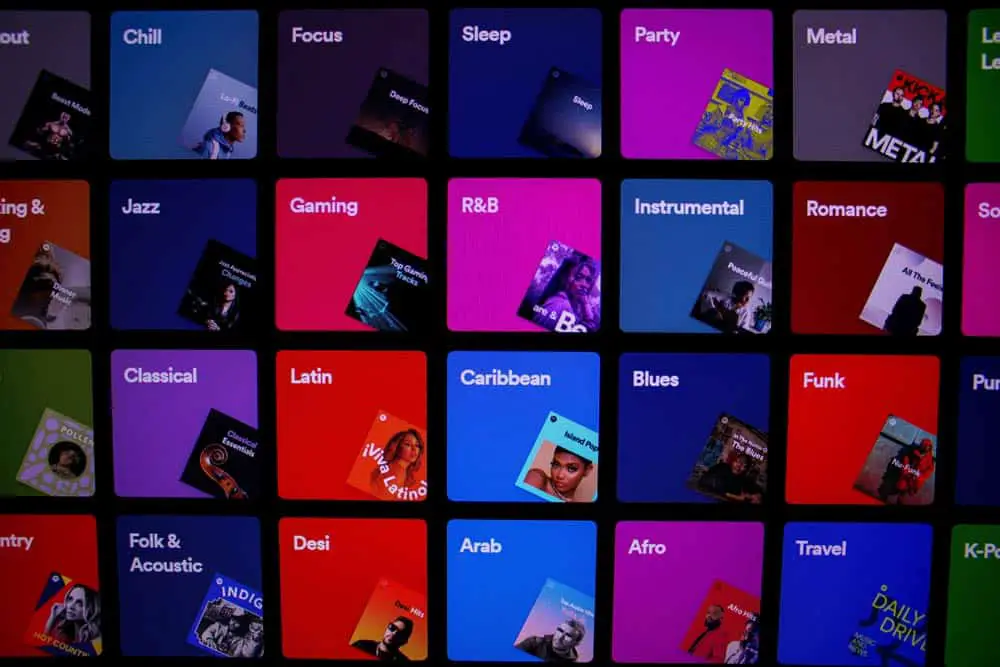
13. Pitch Your Music To Playlists
There is mixed opinion about whether pitching to Spotify playlists is still relevant in 2023. The fact is that Spotify is a msuic industry giant, it’s available in over 180 countries, has exceeded 1B downloads in the Android app store and has over 515 million active users! It’s the biggest market you can tap into – so getting on their playlists should be a part of any music marketing strategy.
You can a pitch to third-party playlist curators and Spotify’s editorial team. You should pitch to Spotify on every release, it’s free and can be done via your Spotify for Artist page. (If you haven’t done already, signup to Spotify Artists! It’s free) Spotify curated playlists are hard to get on but provide quality, authentic listeners. A placement on one of Spotify’s playlists will do wonders to boost your streaming numbers. Before you pitch, check out this great article by Stereofox on how to write a great Spotify pitch.
You can also pitch to to playlists via third-party curators such as Submithub, MusoSoup, Playlist Supply and Playlistpush. You can setup up campiagns for your music and contact different blogs, playlists and social influencers via these platforms. (If you’re interested here’s a Playlistpush promotion code for 7.5% OFF 2XQHPY8 ).
The key is to get placed on quality playlists that will expose your music to potential new fans. Obviously, having more people discover your music is the aim of music marketing, but there is also another benefit. The more playlists you can get your music on to, the more this teaches the Spotify algorithm who will like your music; which artists are similar, what emotion goes with your music and that your music’s meta tags are accurate. This in turn helps Spotify’s algorithm ‘know’ when to suggest your music to listeners and where to place you in their ecosystem. Another benefit of being selected on third-party playlists is that it can further support you in your pitch for a Spotify playlist slot.
Top Tip – Unsure what meta tags to add to your music? Check out Cyanite, a free AI tool that analyzes your tracks genre, mood, energy & more.
If you’re savvy – you can use Playlist Supply to get hold of third-party curators’ email addresses so that you can pitch them directly in an email campaign.
A word of warning – Be very careful when selecting a playlist to pitch to. There are many artificial playlists that inflate their streams with bot plays. You do not want fake streams as it will risk having your Spotify account closed. Read more on how to avoid fake playlists in Venture’s article “How streaming bots are ruining careers of Independent Musicians” here.
I have included this tip last to encourage you to try other music marketing strategies first. Chasing placement on third-party playlists is an easy way to burn through your cash with often little reward. If you’re just starting out I would recommend building your musical infrastructure first and spending your time focussing on building your audience in person and on social media.
Use Code: 2XQHPY8
I hope these music marketing strategies help you get your music heard. Good luck my friend! I wish you well in your music promotions 🙂
Related Music Marketing Articles:
How to Make & Sell Band Merch
How to Get Music Gigs as a Band or Musician
SEO for Musicians: 11 Useful SEO Tips


